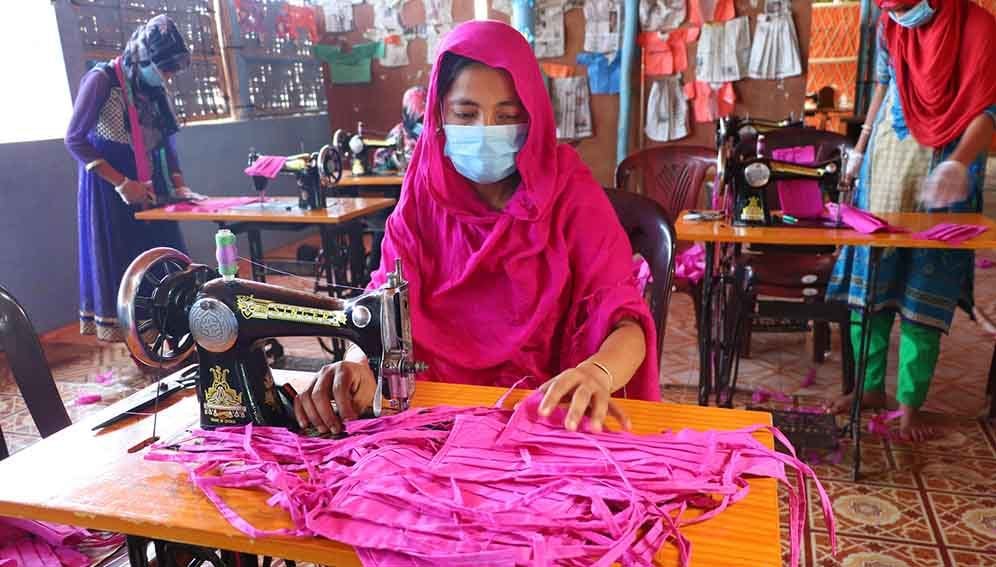09/02/21
‘Dire’ economic losses in first three months of COVID-19 pandemic

By: Gareth Willmer
Send to a friend
The details you provide on this page will not be used to send unsolicited email, and will not be sold to a 3rd party. See privacy policy.
A large proportion of households in lower- and middle-income countries were suffering “dire economic conditions” and food insecurity within just three months of COVID-19 being declared a pandemic last March, a study says.
Steep drops in employment and economic losses in many of the countries surveyed rivalled or exceeded those experienced by rich nations, the report says.
This contrasts with the assertion by some analysts that poorer countries experienced a milder initial impact because of their relatively young populations and fewer connections by trade and travel to the global economy.
“The pandemic is a severe setback to the progress made against extreme poverty over the last 25 years,”
Ambar Narayan, lead economist, World Bank poverty and equity global unit
The authors of the study, in Science Advances, describe the data they gathered as some of the most systematic yet on the pandemic’s impact on households, collected from more than 30,000 households across nine countries in Africa, Asia and Latin America through phone surveys and pre-existing data.
Between 50 and 80 per cent of sample populations in eight of these countries reported income losses — namely, Bangladesh, Burkina Faso, Colombia, Ghana, Kenya, the Philippines, Rwanda and Sierra Leone — with Nepal the other country surveyed. The median proportion of respondents experiencing reduced income was a “staggering” 67 per cent, says the report.
A large proportion of households in some countries were unable to meet basic nutritional needs as early as April 2020. Some 48 per cent of rural households in Kenya and 87 per cent in Sierra Leone faced missed meals or reduced portion sizes.
“Without mitigation, the substantial and widespread economic distress caused by the current pandemic may induce fallout that persists for decades,” says the report.
Taking a toll
The results show the extent to which restrictive measures have taken a toll even in countries where large proportions of the population are young and work outdoors in situations less conducive to transmission, says Niccoló Meriggi, country economist for Sierra Leone and Liberia at the London-based International Growth Centre and a co-author on the report.
“If you look at things like food insecurity, you can see the spike in skipped meals,” says Meriggi. “This is coming from a lot of people that are already food insecure.”
Lower- and middle-income countries will need to find creative social protection solutions for the long term, while measures such as cash or food transfers to reduce the need for people to work in crowded markets could also be used to help, says the report.
It adds that it is also in the interest of rich countries to provide assistance, especially as COVID-19 does not respect borders. Yet solutions will be a major challenge while many are looking inwards to solve their own pandemic issues, acknowledges Meriggi. “Support is needed, but you cannot squeeze a dry stone,” he says. “Because resources are more limited, it’s hard to prioritise what should be funded.”
Systemic problems
The “extremely worrying” situation described in the report is worse than some had anticipated, compounded by forecasts that some countries may not have widespread access to vaccines until 2024, says Amanda Lenhardt, a research associate at the Overseas Development Institute in London.
“This crisis is revealing systemic problems that were present before the crisis… lack of social protection, lack of labour rights, fragile domestic markets and food systems,” she says, pointing out that the situation is likely to have got even worse since those first three months of the pandemic.
Keetie Roelen, a research fellow at the Institute of Development Studies in Brighton, UK, says colleagues working in slum communities in Dhaka, Bangladesh, have highlighted the difficulty of earning an income during lockdowns, including for children in the labour market.
“For some children, this means needing to work in even worse and more exploitative conditions,” she says.
“The pandemic is a severe setback to the progress made against extreme poverty over the last 25 years,” says Ambar Narayan, lead economist in the World Bank’s poverty and equity global unit. He points to World Bank estimates that between 119 and 124 million people were pushed into extreme poverty in 2020 in the wake of COVID-19, rising from previous estimates. The figure is forecast to increase to between 143 and 163 million this year.
The situation could also have considerable knock-on effects with respect to opportunities in society, says Narayan. “Education is the most reliable ladder to upward mobility among the poor and vulnerable in developing countries, and the pandemic is shortening this ladder for billions of children of the current generation,” he says.
“There is a need to focus on equity during the period of economic recovery and not postpone it to the future after some economic expansion has taken place,” adds Narayan.


